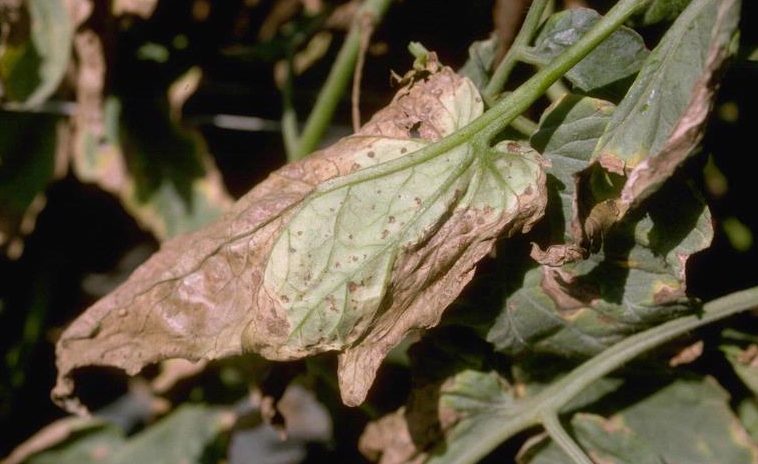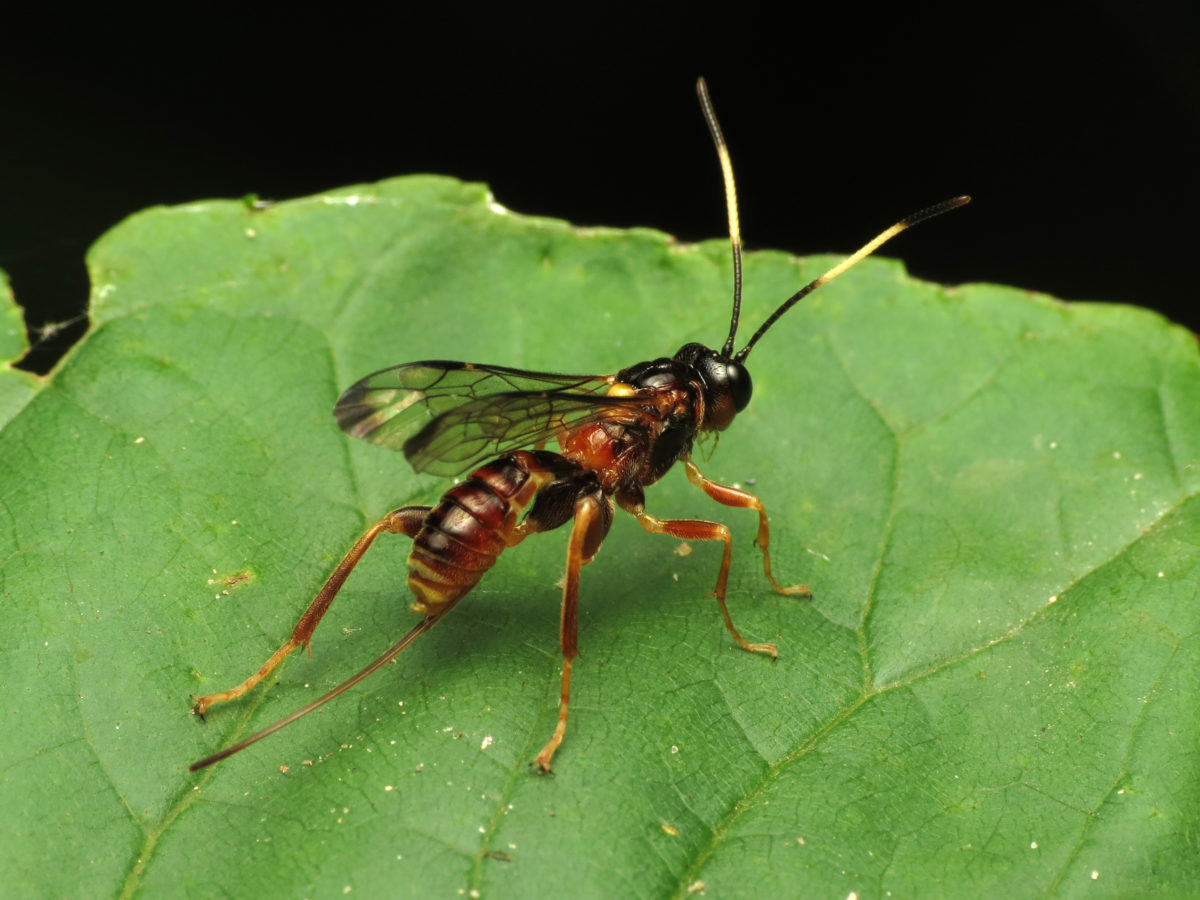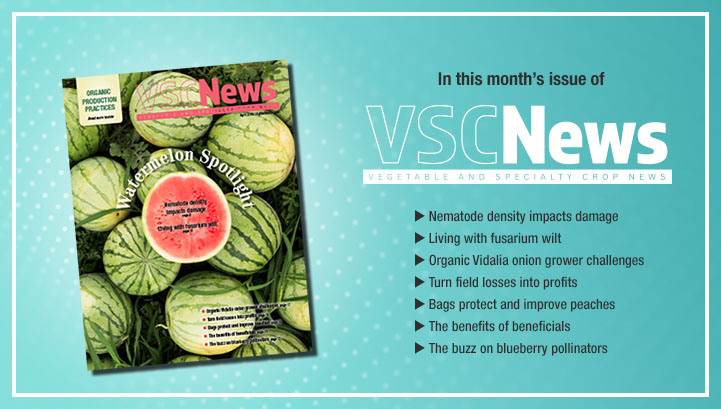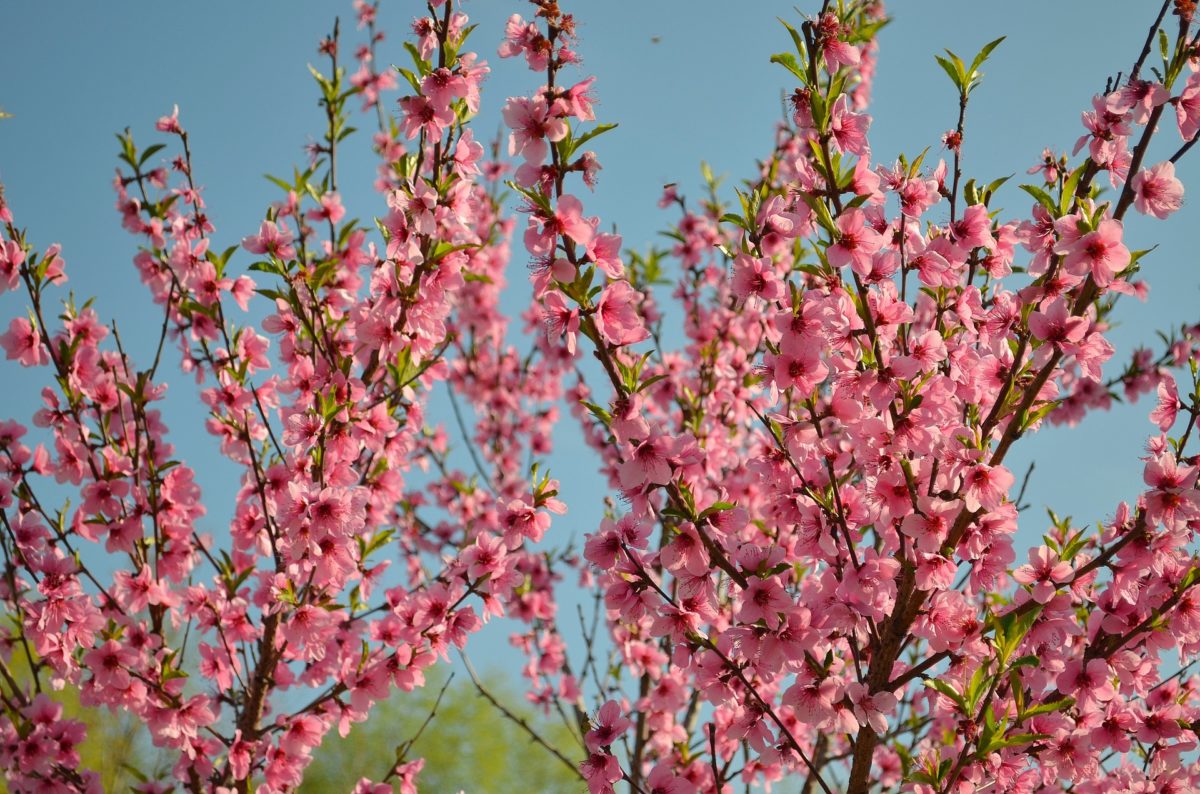Alabama Extension wants those growing tomatoes and peppers to be aware of bacterial spot, a common disease on the leaves of those two plants. There are several steps growers can take to control and prevent the disease, which involves using multiple management tactics. Controlling the disease with chemicals alone usually results in failure. Steps growers can take include rotating fields …
The Benefits of Beneficials
For organic growers, the tools to control pests are scarce. However, using insects to fend off pests may be a good option. Ayanava Majumdar, Alabama Cooperative Extension entomologist with Auburn University, has been studying the impacts of beneficials for years and is constantly getting questions from growers about how best to use these pest management tools. Majumdar says beneficials, or …
Sneak Peek: April VSCNews Magazine
The April issue of VSCNews magazine is packed with information for conventional and organic growers. Readers will learn about pest management methods and ongoing challenges faced by an organic commodity in Georgia in next month’s issue. An article by researchers with the University of Georgia and the U.S. Department of Agriculture — Bhabesh Dutta, Carroll Johnson and Jason Schmidt — …
Early Developing Peach Varieties Take a Hit
Early-developing varieties of peaches took a hit from recent freezing temperatures. Some parts of Alabama reached temperatures as low as 21 F from March 4 to 7. Depending on the area and conditions, early peach crops could be affected by this stretch of freezing weather. Edgar Vinson, an Alabama Extension commercial horticulture specialist, said early varieties took the major hit …
Freezing Temperatures Mean Trouble for Southern Crops
An unusually warm February followed by a cold March could mean trouble for crops in the South. The U.S. Department of Agriculture’s (USDA) Stephanie Ho has more on this story with USDA Meteorologist Brad Rippey. Hear the full story: Sponsored ContentTriEst Ag Group: Partners in ProfitabilityApril 1, 2024SECURE FUNDING NOW | USDA-Sponsored Farming Project Underway in the Southern PiedmontFebruary 1, …













